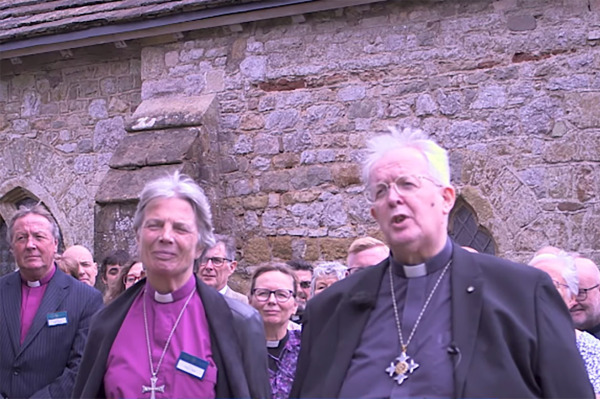The value of silent apologetics

I heard a story once of a family that was getting ready to go on their annual camping trip. Dad was loading up the last few bags into the minivan. Mum was packing some food and snacks for the road. Older sister was making sure she had the right playlist on her iPod to last her the week. And little Billy, all of six years old, was getting his last few shots in on the family’s basketball hoop in the driveway. It had been a whole year since the family’s last trip and they were looking forward to this one.
Colorado was simply breath-taking this time of the year. They were all loaded up and ready to get on the road. Dad called out to Billy to get in the van just as he was putting up his last shot. The ball bounced off the rim at an angle toward the end of the driveway into the main street. Billy ran toward the ball that had rolled out onto the middle of the street. He didn’t see the vehicle that was careening toward him out of control. Billy died on impact, in front of his parents’ eyes. A few days later, at Billy’s funeral, friends and family were arriving at his home. After a somber service, just as everyone was leaving, a family friend went up to Billy’s mom and said, “I know this is tragic and heart-breaking but don’t forget that God knew what He was doing.” That was the day Billy’s mom became an atheist.
For decades later, she could never forget that woman’s remark. Somehow, more than anything else, it was that comment that redefined her theology and left a lasting and damaging effect on her faith. What kind of God would take her little Billy from her in that manner? To her, such a God simply could not exist!
I’ve thought about that story several times in my life. Why did the mom lose her faith over some random comment? Maybe she just over-reacted; she was grieving after all. Perhaps she wasn’t being rational or responded too emotionally. I began to wonder if maybe it wasn’t the mother’s grief-stricken response that I should be assessing. Maybe it was her well-meaning friend’s comment. But wait, wasn’t she technically correct? God does know what He is doing, doesn’t He?
Even in the midst of tragedy, God is not surprised or caught unaware. God could have made that ball bounce away from the road and kept Billy safe. But He didn’t. In a sense, God allowed this to happen and “knew what He was doing” when He allowed it, right? What’s wrong with that? Even today I stand by the fact that she technically didn’t say anything wrong. But I do believe that she was still wrong to say it. It wasn’t the content of her remark, but it was the timing that was terribly wrong.
I was once asked what kind of apologetic argument I would give to someone who had just lost a loved one. Would I give a biblical exposition of the Fall? Would I offer a philosophical explanation of moral and natural evil? Would I unpack the diverse theological facets of theodicy? My answer was simply this — I would give NO argument. I would offer only silence.
But wait a minute, this person is grieving and desperately in need of answers. Isn’t this the best time to give them a good dose of theology, philosophy and apologetics? Christian apologists especially are prone to making this mistake; the mistake of assuming that every crisis needs an immediate and comprehensive theological or philosophical response. But this is simply not the case. In fact, just like in the story mentioned above, we can do grave damage by offering the right answers at the wrong time. Yes, we must be prepared to give a comprehensive response. But no, it doesn’t have to be immediate. Rather we must use the discernment of the Holy Spirit to know when we must speak and when we must be silent.
Often, when someone is racked with grief, we must recognize and be sensitive to the fact that they are extremely emotional during that time. They are probably in a state of shock, disbelief or denial. They might not be thinking straight or coherently. In that highly emotional and vulnerable state, that person might not be prepared to listen to anything intellectually or cerebrally demanding, no matter how correct the reasoning might be. We might mean well but that is simply not the time to wax eloquently on the intricacies of biblical theodicy.
An ill-timed comment or remark, however true or factual it might be, could upend the person’s thought-process by inflicting upon it a sort of “rational burden” that they might not be prepared to receive at the moment. And that can often short-circuit their rationality because at that moment they are still under the powerful vice of their emotions. This may lead to them coming to emotional conclusions rather than rational ones. And emotional conclusions can be extremely powerful.
Rather when a person has lost a loved one or is grieving something, the best thing we can do as Christians is to come around them, put an arm around them and weep with them. Nothing needs to be said no matter how awkward the silence. Just be there for them, show that you care, and be present in their grief. Often this may look like being close to them so they are not alone but not engaging them verbally in order to respect their space. Eventually, the emotional dust will settle. Sometimes this may take weeks or even months. But we must be patient and present.
Often when the emotional dust does settle, the person may be willing to open up about the rationality of the event that caused the grief. When that happens, it might be a door for when we could attempt to gently and with great tenderness, offer an apologetic response. Even then, we must recognize that our counsel must not be driven by any personal agenda but by the leading of the great Counselor himself, the Holy Spirit.
When someone is hurting and emotionally tender, we need to remember to be Christ to them in that moment. And just like Jesus at the tomb of Lazarus, the best apologetic we can give to a hurting heart is to weep with them in silence. Apologetics doesn’t always mean giving good answers. Sometimes good apologetics is knowing when to be silent so that God can prepare someone’s heart and mind to receive good answers in due time.
Prashanth Daniel is a writer and speaker whose passion is to train Christians to understand, articulate and defend their faith as winsome ambassadors, specifically in the fields of theology, philosophy and apologetics. He holds an M.A. in Christian Apologetics (Biola University, CA) and an MTh. in Systematic Theology (University of Aberdeen, UK). Prashanth, his wife, Elisha, and their three boys live in Chariton, Iowa.





















